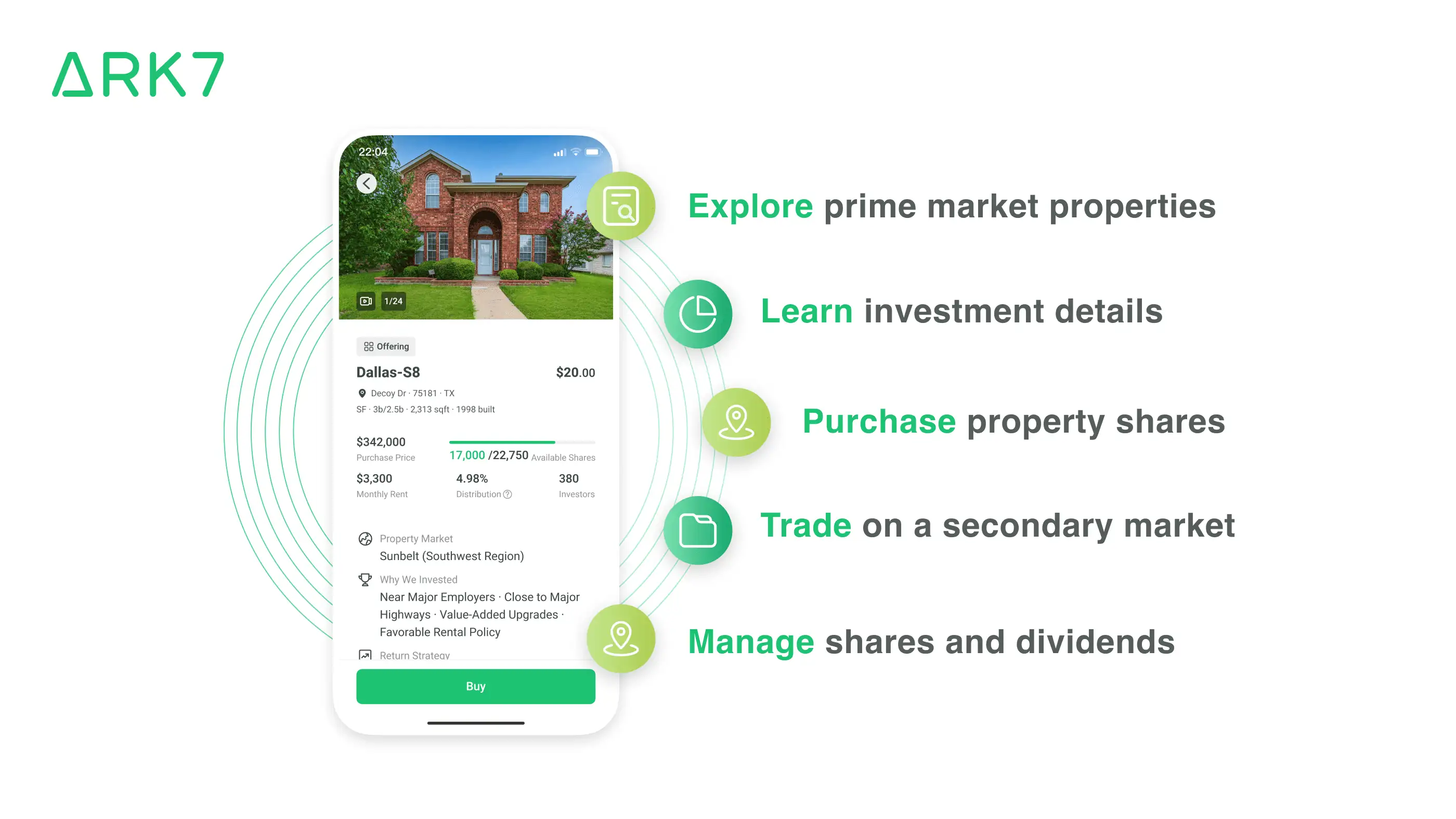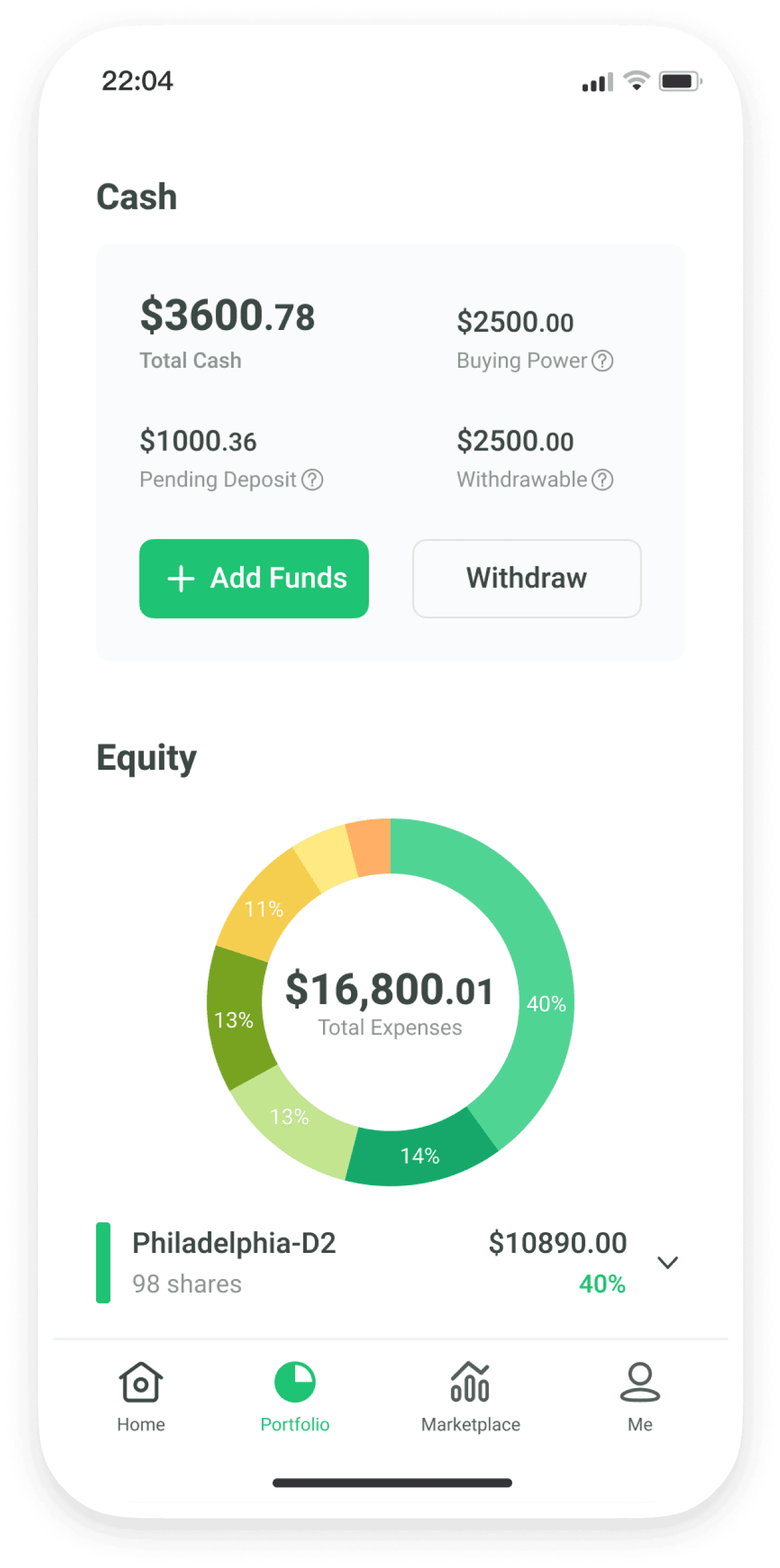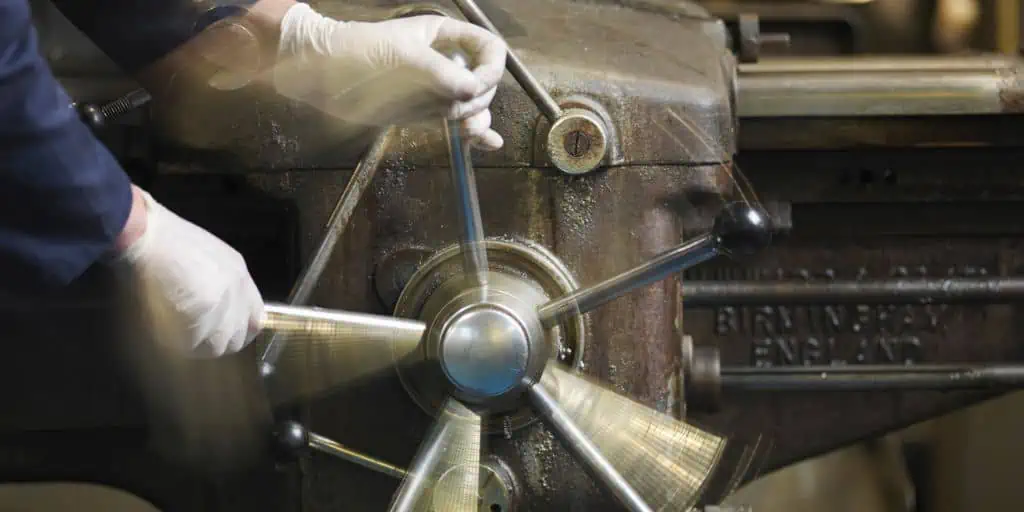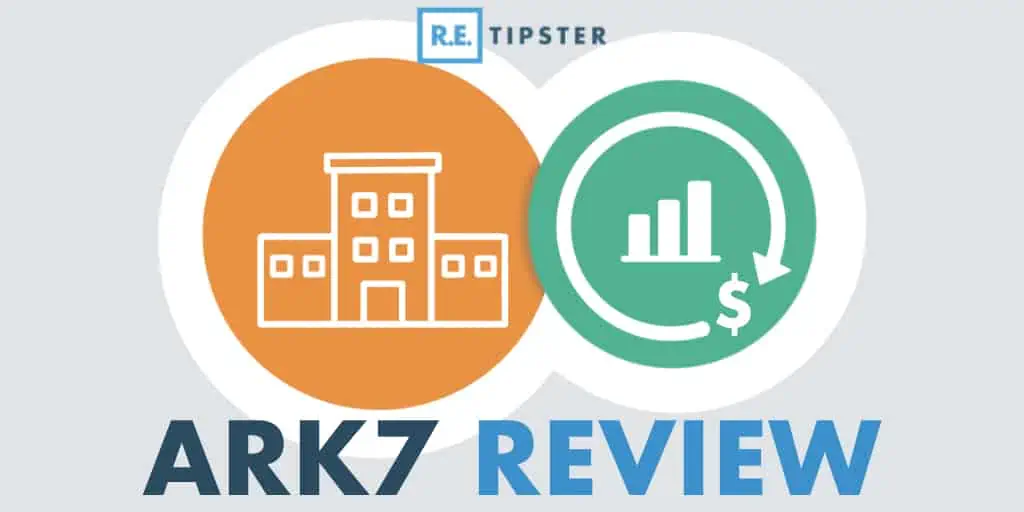
REtipster features products and services we find useful. If you buy something through the links below, we may receive a referral fee, which helps support our work. Learn more.
It feels like Ark7 came out of nowhere as the ultimate fractional ownership platform for rental properties.
Despite being founded in 2018, Ark7 didn’t get much press in the real estate crowdfunding space until 2022. But today, its platform feels polished and fully realized, albeit without the range of property options competitors like Arrived offer.
Is Ark7 worth investing in? Understand these pros and cons before whipping out your wallet.
Ark7 Review
Summary
Ark7 offers fractional shares in rental properties for $20 apiece, some available to non-accredited investors. After a minimum one-year holding period, you can sell shares on their secondary market.
With transparent pricing and an intuitive dashboard and mobile app, Ark7, in many ways, feels like the perfect way to buy rental properties. Just beware that the platform remains young, and the selection of properties is relatively small as of 2023.
Pros
- Liquidity & Secondary Market
- Low Minimum Investment
- Available to Non-Accredited Investors
- Multifamily & Short-Term Rentals Available
- Simple & Transparent Fees
- IRA Access
- Intuitive Web Interface
- Mobile App
- Strong Security
Cons
- Brief Track Record
- Minimum Holding Period
- Restrictions on Non-Accredited Investors
- Limited Selection of Properties
- No Automation
What Is Ark7?

When you buy a share in an investment property, you buy a small piece of ownership. That entitles you to your portion of both the rental cash flow and the appreciation and profits upon sale. Or losses, of course—no investment comes without risk.
But you don’t have to wait for Ark7 to sell the property in order to get your money back (hopefully with a profit). Ark7 features a secondary market where shareholders can sell their shares anytime after an initial one-year holding period.
How Ark7 Works
The lifecycle starts with Ark7 buying an investment property, typically a turnkey either recently built or renovated. They make any final updates needed and rent out the property.
Ark7 then opens the property to the public for investment, pricing each initial share at $20. It usually keeps a 1% to 10% interest in each property and sells off the rest of the property ownership. Doing so frees up its capital to go out and buy more properties and keep growing the portfolio of available investments on the platform.
Once the initial offering sells out, the property operates for a year before Ark7 opens it on its secondary market. It mandates a one-year minimum holding period to prevent the day trading of shares.
After the one-year holding period, owners can sell their shares if they like, and investors from the public can buy shares. Beyond adding liquidity for owners, it also ensures the portfolio of properties available on Ark7 keeps growing, not limited to newly acquired properties.
While you own shares in a property, you receive rental cash flow through distributions.
Prospective investors can browse properties and view detailed information about their financials and cash flow, the neighborhood, historical and projected appreciation, and past performance.
Pros of Ark7
I have invested in Ark7’s real estate platform. Here’s why.
Liquidity and Secondary Market
One of the huge drawbacks of most real estate crowdfunding platforms is the lack of liquidity. Most require you to lock up your money for at least three to five years and penalize you if you withdraw it sooner (if they allow early withdrawals).
Ark 7 has a minimum investment period, but only one year. That makes it a rare short-term real estate investment option.
After a year, you can sell your shares at any time, for either the market bid price or by setting a limit asking price (just like a stock).
Low Minimum Investment
Another common downside to real estate investments is the high minimum to invest. That includes everything from direct property investing to real estate syndications to many real estate crowdfunding platforms. In many cases, you need tens of thousands or even $100,000 to invest in real estate.
Ark7 lets you invest in a rental property for as little as $20. You could cover that by skipping a few coffees or a lunch out of the office.
That means anyone can truly buy an investment property—or at least partially own one.
Non-Accredited Investors Allowed
Another huge drawback to passive real estate investments is that only wealthy accredited investors can access them. Average Joes need not apply.
But Ark7 allows anyone with a U.S. bank account to buy shares and become a fractional owner.
Multifamily and Short-Term Rentals Available
Beyond single-family rentals, Ark7 also offers multifamily properties and short-term Airbnb rentals.
If you’re an accredited investor, anyway. Unfortunately, these properties are not available to non-accredited investors (more on that shortly).
Simple and Transparent Fees
Some real estate crowdfunding platforms bury their fees in offering circulars or get away with hiding fees by calling them operating expenses, even though they get paid to a subsidiary owned by the same platform.
I appreciate Ark7’s simple and transparent fee structure. Ark7 charges a one-time property sourcing fee of 3% of acquisition costs to cover their expenses. It also handles most property management in-house and charges between 8% to 15% of the rent collected as a property management fee. Long-term rentals fall on the lower end of that range, while vacation rentals lie on the higher end, given the greater labor required.
Invest Through an IRA
You can open an IRA investing account on Ark7 at no additional cost.
That said, you still need a self-directed IRA custodian. Ark7 has partnered with Millennium Trust Company to make this easier if you don’t have one. It’s the same company that Fundrise has partnered with, and they charge $100 per property per year, capped at $400 and waived if your balance exceeds $100,000.
Intuitive Web Interface
Ark7 keeps its website and dashboard simple, clean, and easy to navigate.
After creating a free account, you can browse available properties, both new offerings and on the secondary market. Just click on a property to view all investment details—from the neighborhood to the property’s acquisition cost breakdown to cash flow and monthly expenses.
Even without logging in, Ark7 makes it easy to browse frequently asked questions and its help center and browse an overview of available properties.
Mobile App
Prefer to manage your investments on your phone or tablet?
You can download the Ark7 mobile app to invest through it instead. It brings a similarly simple user interface, so you don’t need to spend hours learning how to navigate it.
Strong Security and Encryption
Security matters when you’re buying and selling, well, securities.
When you connect your bank account and manage investments on an online platform, you need to sleep at night knowing it’s secure. Ark7 loves to brag about its ironclad security, which you can read more about here.
Cons of Ark7
For all those upsides, no platform is perfect, and Ark7 has its fair share of drawbacks.
Keep the following in mind before you invest your hard-earned cash.
Restricted Properties for Non-Accredited Investors
While non-accredited investors can buy long-term rental properties on Ark7’s platform, only accredited investors can buy shares in multifamily properties and short-term vacation rentals.
That limits how much you can diversify your portfolio on Ark7 if you aren’t a qualified investor. But as more properties pass the one-year mark and become available on the secondary market, more options become available over time.
Brief Track Record
Despite being founded in 2018, Ark7 didn’t ramp up its property acquisition until early 2022. It just hasn't been offering property shares for very long, at least compared to the more established crowdfunding platforms like Fundrise, Groundfloor, EquityMultiple, and even Arrived.
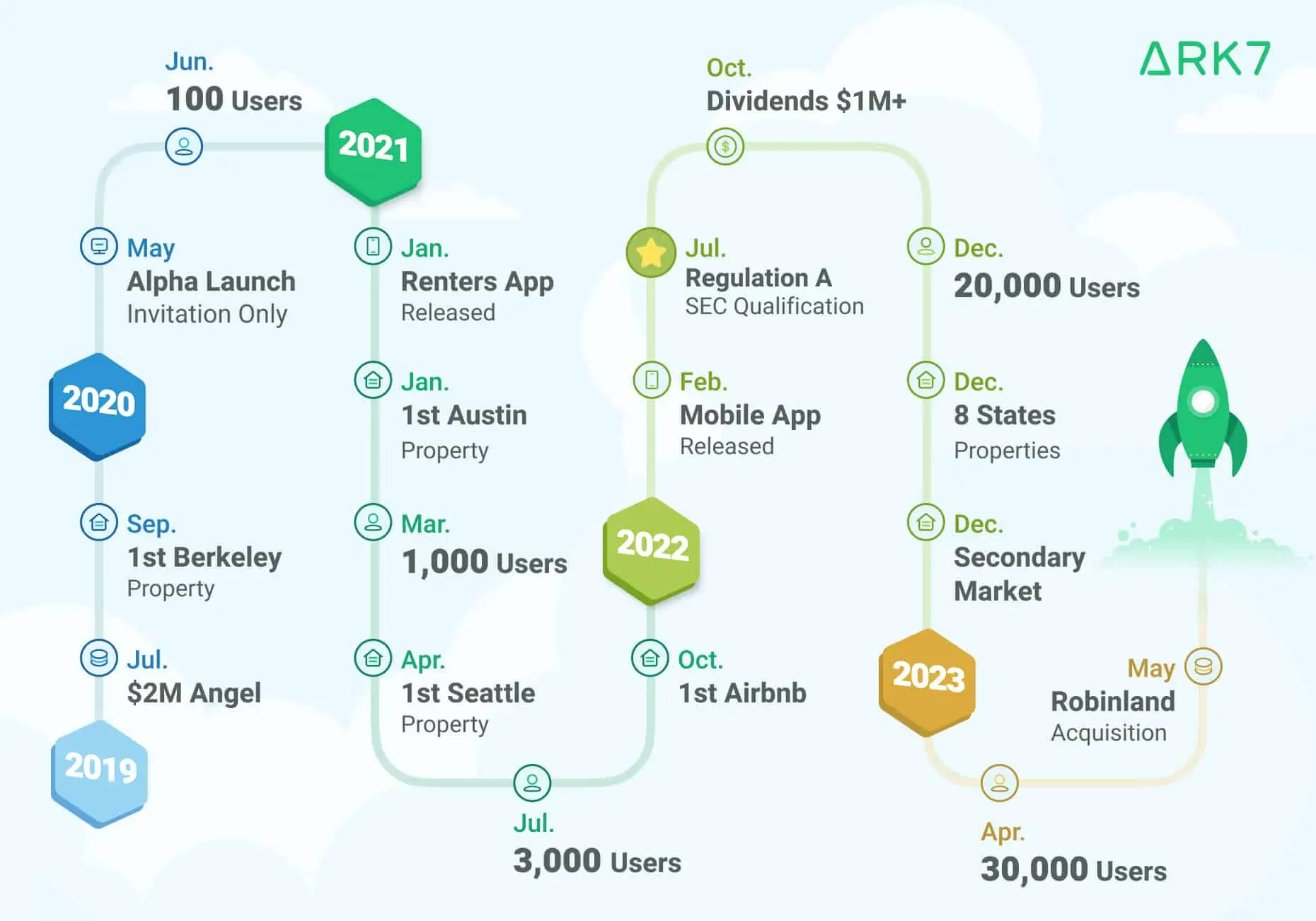
While relatively new, Ark7's evolution is continuous process.
Past performance may not guarantee future returns, but it makes you feel better about investing. And the more past performance you can look at, the better.
Limited Selection of Properties
Having just started scaling operations in early 2022, there aren’t many properties available currently.
As of June 2023, Ark7 offers six long-term rental properties for non-accredited investors: four listed for initial share offerings and two listed on the secondary market. Accredited investors can access more, with seven new property share offerings and six properties trading on the secondary market.
Ark7 lists properties available to accredited investors only as “Ark7+” properties.
Minimum Holding Period
I get why Ark7 doesn’t want people day trading or manipulating share prices.
Even so, “full liquidity after one year” is not the same as “full liquidity.” Plan on leaving your money parked for at least a year when you invest in property shares on Ark7.
No Automation
Ark7 does not offer automated investing. Again, I understand that each property is different, and most investors want to manually review each before buying shares.
But as someone who currently automates my Groundfloor investments, it’s also nice to have the option to put your investments on auto-pilot for easy, effortless diversification.
How Ark7 Compares to Competing Platforms
Arrived and Lofty compete directly with Ark7 to offer fractional shares in rental properties with low ($100 and $50, respectively) share prices.
In Arrived’s favor, they have a longer track record and have featured many more properties over the last few years. They, too, offer both long- and short-term rental properties. But they still don’t offer a secondary marketplace and therefore don’t provide any liquidity for shares. Once you buy into a property on Arrived, you’re stuck with it until they sell, usually five to seven years later.
That also means that the selection of available properties on Ark7 will eventually beat Arrived since every property bought by Ark7 starts trading after a year. Unlike Arrived, I also like that Ark7 maintains a small but real ownership interest in each property. For more information, read our review of Arrived.
Lofty does offer a secondary market for buying and selling property shares, but it comes with an enormous caveat. When you sell shares, you don’t receive U.S. dollars; you get paid in cryptocurrency. You then have to convert those funds to a more compatible cryptocurrency, convert it again to USD, then transfer the money from a crypto wallet to your bank account. Gag me with a watermelon, as my father used to say.
With its short-term loans, Groundfloor comes closest to the brief investing timeframe set by Ark7. But Groundfloor doesn’t offer liquidity, and for individual loan investments (LROs), you get paid only after the borrower repays the loan. Plus, there’s the obvious difference that Groundfloor offers property-secured debts rather than fractional ownership of properties. Read our Groundfloor review for more details.
Technically, Roofstock One offers fractional property ownership, but only for accredited investors, and with a minimum investment of $5,000. Read our full Roofstock review here.
Lastly, Fundrise does include single-family rental properties in their portfolios, but in most cases, you can’t pick and choose—they’re included in broad investment funds.
Final Thoughts
As hands-off investing goes, Ark7 offers an easy way to invest in long-distance properties with little cash and no headaches.
I like Ark7’s platform and have invested in property shares myself. Between its secondary market, clean interface, transparent fees, and accessibility to everyday investors, it makes a compelling crowdfunding option.
But it still feels new and less-than-proven. Consider starting with small amounts, building comfort with the platform, and scaling up as you gain confidence.




